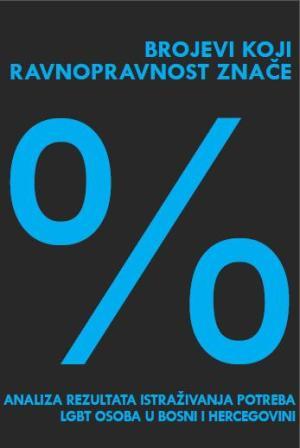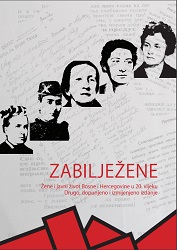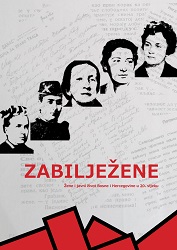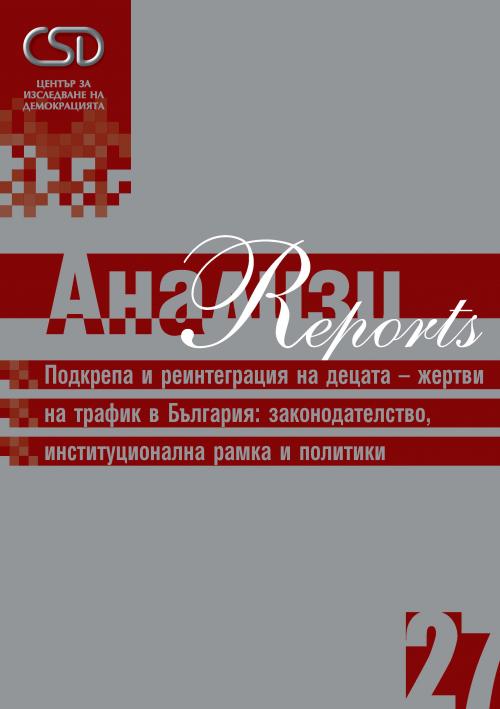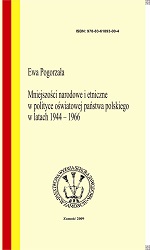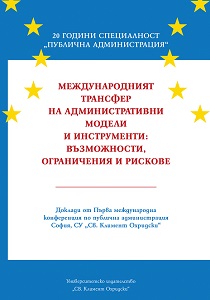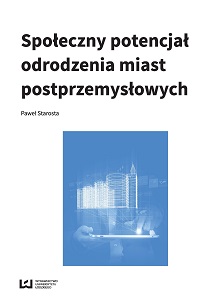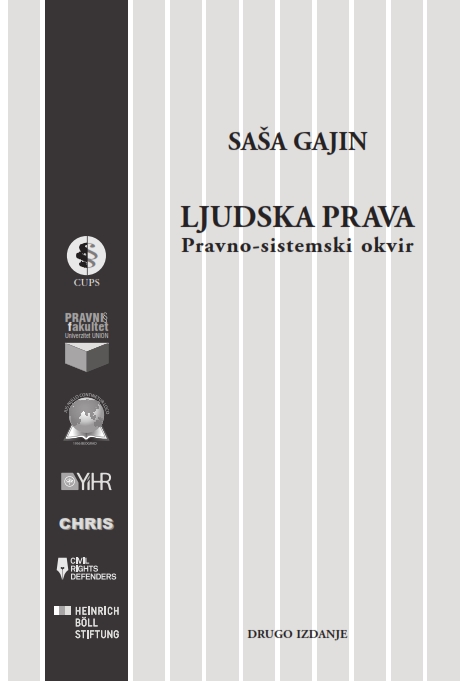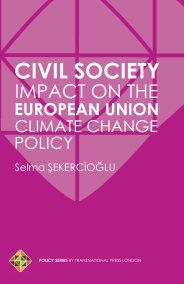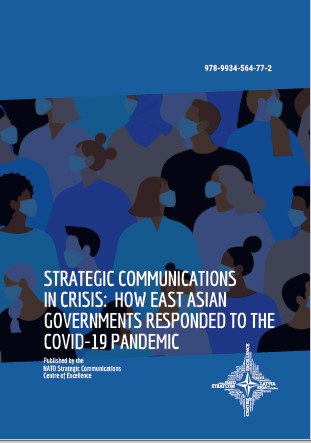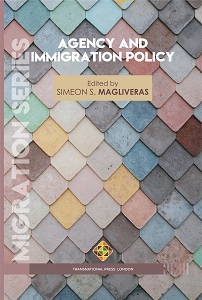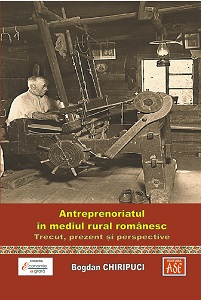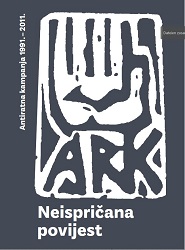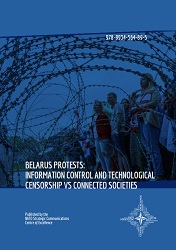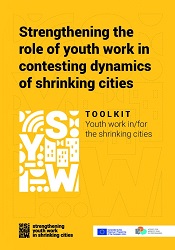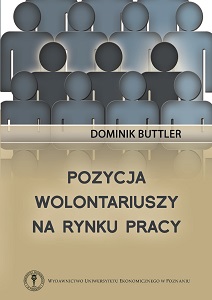Author(s): Jasmina Čaušević / Language(s): Bosnian
Sarajevski otvoreni centar je od februara do jula 2013. godine radio na istraživanju problema i potreba LGBT osoba u Bosni i Hercegovini. Inicijalni cilj ovog istraživanja je bio locirati stvarne probleme i procijeniti konkretne potrebe LGBT osoba u BiH kako bi se moglo, argumentirajući preciznim podacima, dalje raditi na rješavanju tih problema kroz konkretni rad sa institucijama, kroz zagovaranje, edukaciju, sastanke i savjetovanja, za koje se pokaže da diskriminiraju LGBT osobe, ne obavljaju svoj posao u skladu sa etikom ili na bilo koji drugi način ne zaustavljaju politiku selektivnog branjenja ljudskih prava. Interdisciplinaran teorijski pristup u uvodu u analizu bio nam je neophodan kako bi se iz nekoliko perspektiva osvijetlila sva složenost socioloških fenomena, te kako bi se napravio prostor za smještanje konkretnih podataka bosanskohercegovačkog konteksta u širi teorijski okvir. Upitnicima se ispitivalo kako osobe neheteronormativnog rodnog i spolnog identiteta, te seksualne orijentacije žive u BiH – koje osobe iz njihovog okruženja znaju za njihove LGBT identitete i da li podržavaju, da li su i gdje doživjele diskriminaciju i nasilje, kako su se odnosile prema takvom vidu ugrožavanja svojih ljudskih prava, kako je društvo i pravni sistem reagovao, šta misle o Paradi ponosa i imaju li povjerenje u policiju, da li njihovo psihičko zdravlje strada tvog straha i homofobije koju trpe zbog svoje seksualnosti ili rodnog izražavanja, te kako se zdravstveni radnici_e odnose prema njima. Također, ispitivali su se stavovi LGBT osoba o njihovim društvenim potrebama, o tome šta zajednica misli o samoj zajednici, o radu Sarajevskog otvorenog centra, i na kraju o političkoj participaciji LGBT osoba. Podaci prikupljeni upitnicima obrađeni su u SPSS statističkom programu. Deskriptivna analiza je pisana na osnovu statističke analize i bazirana je na interdisciplinarnom pristupu oblastima i temama kojima se bavi. Kroz analizu nam je, prije svega, bilo važno da interpretiramo pitanja koja smo postavili kao ciljeve istraživanja. Ova analiza će poslužiti kao platforma za dalje zagovaranje, kod vladinih i drugih institucija – policija, zdravstvo, resorna ministarstva, pravosuđe itd, promjena u korist LGBT osoba. Istraživanjem je obuhvaćeno 545 osoba, starosti od 54 do 15 godina. Osoba ženskog spola je bilo 275, muškog 246, interseksualnog 14, transeksualnog 9, a 1 osoba je označila da se ne identificira po spolu. Od ovog broja, 252 osobe su se identificirale kroz ženski rod, 235 kroz muški, kroz transrodnost se 9 osoba identificiralo, 42 osobe se ne identificiraju rodno, dok se njih 7 izjasnilo kroz sopstvenu samokreaciju roda. Što se seksualne orijentacije tiče, 338 je homoseksualne orijentacije, 151 osoba je biseksualne, 25 je panseksualne, 7 osoba se izjasnilo kao aseksualno, 9 kao heteroseksualno, a 15 osoba je odgovorilo „drugo“ i dopisalo kako razumiju svoju seksualnost. S obzirom na nezanemarivu brojnost trans* i interseks osoba koje su učestvovale u istraživanju, u jednom poglavlju se posebno bavimo njima. Kroz pitanje koje osobe iz Vašeg okruženja znaju/ne znaju da ste LGBT osoba, pokazalo se da za čak 90,4% LGBT osoba prijatelji_ce znaju i da ih velika većina podržava – od ukupnog broja prijatelja_ica koje znaju, 89,2% podržava svoje LGBT prijatelje_ice. Također, i kolege_ice sa posla/iz škole/sa fakulteta češće znaju da je osoba LGBT nego članovi porodica. Naime, za 46,4% osobe okruženje sa posla, iz škole ili fakulteta zna da su LGBT i dvije trećine (66,6%) ih podržava. Sestra/sestre u 44,7% prilika znaju da im je brat/ sestra LGBT osoba, i 86,7% pružaju podršku, što ih čini grupom koja poslije prijatelja_ica najviše podržava LGBT osobe. Na četvrtom mjestu su majke/starateljice – za 40,7% LGBT osoba majke znaju, ipak samo 61% majki podržava svoju djecu. Brat/braća u 37,1% znaju, ali ih većina podržava, 75,9%. Za svaku treću osobu poznanici_e znaju (36,8%) i većina ih podržava (67%). Svakoj petoj LGBT osobi otac/staratelj zna za seksulanu orijentaciju ili rodni identitet (22,7%) i manje od polovine podržava svoju djecu (41,8%), što očeve/ staratelje stavlja na posljednje mjesto kada je uža porodica i davanje podrške u pitanju, a zatim slijedi šira familija (za samo 15,2% LGBT osoba šira familija zna, ali ih zato dvije trećine ovih koji znaju - 65,7% - podržava). Na pitanje da li ste doživjeli neki vid diskriminacije zato što ste LGBT osoba, pozitivno je odgovorilo 35,8%, a negativno 63,1%. Jasno je da osobe koje nisu autirane u široj javnosti – na poslu, na fakultetu, poznanicima itd – ne mogu ni biti diskriminisane na osnovu svoje seksualne orijentacije. Istraživanje pokazuje da kolege_ice sa posla/iz škole/sa fakulteta u 40,7% znaju da je osoba LGBT ali ih gotovo polovina ne podržava. Također, za svaku treću LGBT osobu poznanici_e znaju koje je seksualne orijentacije. Sve ovo zajedno se uklapa u dobijenu sliku da je malo više od trećine LGBT osoba autovano širem krugu ljudi, te zato diksriminaciju i trpi otprilike svaka treća LGBT osoba. Diskriminacija se ne prijavljuje u 93,8%. Samo su 3 slučaja diskriminacije bila procesuirana, 1 slučaj je završio uspješno, a 23 slučaja koja su bila prijavljena nisu bila procesuirana nikada. Zbog svog rodnog izražavanja ili seksualnog identiteta 23,5% osoba je doživjelo nasilje, a 74,2% osoba nije nikada bilo žrtva nasilja. Fizičko nasilje je doživjela svaka treća osoba, a seksualno skoro svaka peta. Žrtve nasilja su gotovo uvijek autirane osobe. 130 osoba je doživjelo neki oblik nasilja, samo njih 17 je prijavilo to nasilje, a samo 3 slučaja su procesuirana na sudu, dok se 2 slučaja još procesuiraju. Ako se uzme u obzir dobijeni podatak da su samo 3 slučaja, od 17, prijavljenog nasilja procesuirana na sudu, zaista nije neobičan podatak da LGBT osobe nemaju povjerenja u institucije koje treba da ih štite. U policiju ima povjerenje 23,1% ispitanika_ca, dok čak 73,6% nema. Svaka treća osoba koja, trpeći posljedice homofobije, osjeća depresiju, strah, uznemirenost, potištenost, ili neke druge simptome, odlučuje se da potraži stručnu psihološku, psihijatrijsku ili terapeutsku pomoć, a razlozi se odnose ili na pretpostavljenu nekompetenciju osoba kojima bi se obratile, ili na strah da će se otkriti njihova seksualnost. Kao najveći problem, gotovo, 70% ispitanika_ca izdvojilo je nedovoljnu podršku porodice i prijatelja_ica. Iako 85,2% LGBT osoba ne mora pred prijateljima_cama da skriva svoj rodni identitet i seksualnu orijentaciju, očigledno je da većina ne dobija emotivnu, psihološku i socijalnu podršku kakvu želi. Sa druge strane, kako je i pitanje o podržavanju (grafikon 10) pokazalo – porodica nije mjesto podrške, tako je težina ovog podatka samo potvrđena kroz pitanje o najvećim problemima. Gotovo isto tako veliki problem je i fizičko nasilje (napadi, uništavanje imovine i ostalo) – 68,9% osoba ga je označilo kao najveći problem. Psihičko/verbalno nasilje je označilo kao problem skoro isti broj osoba (68,7%). Kada problem nasilja, bilo fizičkog bilo psihičkog, povežemo sa nefunkcionisanjem institucija kada je riječ o kažnjavanju osoba koje vrše nasilje, problem procesuiranja i kažnjavanja nasilja se izdvaja kao najhitniji koji treba rješavati. Diskriminacija na radnom mjestu, u školi ili na fakultetu, predstavlja jedan od najvećih problema za čak 62,6% ispitanika_ca, što problem diskriminacije stavlja u gotovo istu ravan sa nasiljem. Problem nedostatka programa podrške od strane državnih institucija je 66,4% osoba izdvojilo. Policija, sudstvo ili pojedine oblasti zdravstva ne pružaju svoje usluge na profesionalan način, što zbog nedostatka znanja vezanog za LGBT pitanja, što zbog visokog stepena homofobije. Cilj istraživanja stepena aktivne i pasivne političke participacije LGBT osoba bio je osvijetliti činjenicu (koja se podrazumijeva, ali joj se ne pridaje nikakva važnost, a još manje se u njoj vidi izvjesni politički potencijal) da su LGBT osobe, također i, glasači_ice na izborima (više od polovine ispitanih LGBT osoba koristi svoje pravo glasa), da su oni i osobe koje su članovi_ice političkih stranaka u BiH (62 osobe su u političkim strankama), da se kandidiraju na različitim izborima, da imaju određene rezultate (13 od 62 osobe su se kandidirale na izborima i imale određene rezultate). Na osnovu analize dobijenih statističkih podataka i dodatnih komentara koje su ispitanici_e isticali, napisali smo opšte zaključke i preporuke za određene sektore - pojedine oblasti zdravstva, policija, ali i civilno društvo – jer se pokazalo da ne pružaju svoje usluge na profesionalan način, a razlozima i rješenjima ovakve situacije bavili smo se u posebnim preporukama.
More...


